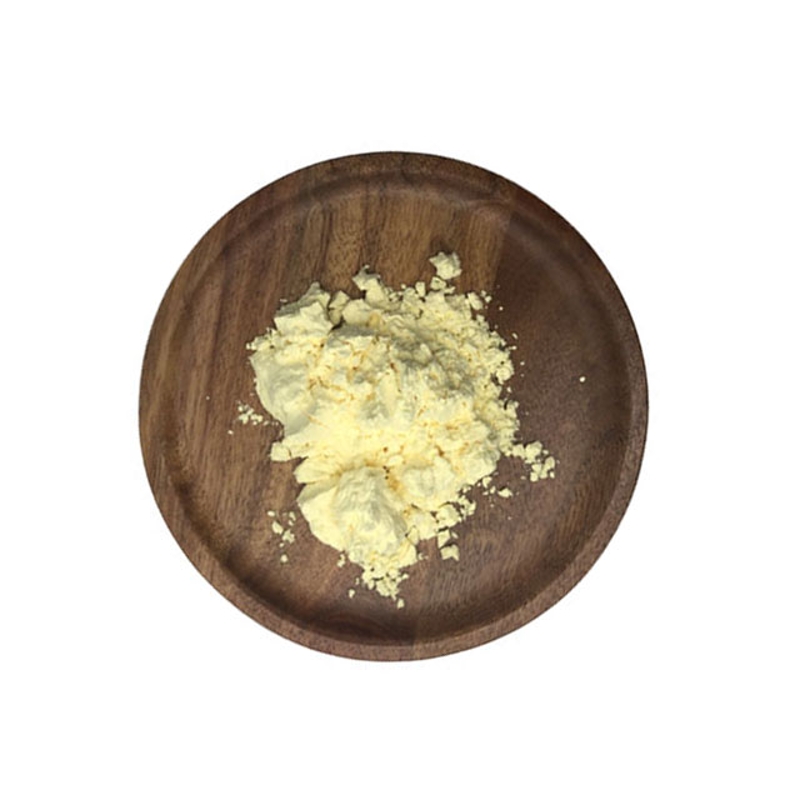Plant Physiol. The Zhejiang University/Cornell University team found that low temperatures enhanceplant immunity through the antagonisticity of ethylene and salicylic acid signals.
-
Last Update: 2020-07-23
-
Source: Internet
-
Author: User
Search more information of high quality chemicals, good prices and reliable suppliers, visit
www.echemi.com
Yiyun plants are resistant to environmental diseases through their own multi-level immune system, including pathogen triggered immunity (PTI) and effector triggered immunity (ETI).PTI recognizes pathogen related molecular patterns through pattern recognition receptors (PRRS) and stimulates basic resistance; ETI induces stronger and lasting immune responses through R proteins.the immune response of plants is regulated by salicylic acid (SA), jasmonic acid (Ja) and ethylene (ET). SA is closely related to both PTI and ETI reactions, and SA can be accumulated in a salicylic acid-production definition (sid1) / enhanced distance susceptibility 5 (eds5) dependent manner after infection by pathogens; in addition, the synthesis of SA is regulated by positive feedback of PTI and ETI signal components For example, EDS1 and phytoalexin defined 4 (pda4) [2,3].in addition to SA, plant hormones JA and et also play a key role in plant immunity, and there is an antagonistic relationship between JA / ET and SA.the complex relationship between these three hormone signals endows the plant immune regulation in the process of environmental change [4].temperature is one of the most important environmental factors affecting plant PTI and ETI responses, and the temperature sensitivity of plant immunity has been found in many host pathogen relationships.it was found that the resistance of Arabidopsis thaliana to Pseudomonas syringae pathovar tomato (PST) was reduced when the temperature was properly increased, and this sensitivity was related to the down-regulation of NLR (nucleoside binding leucine rich repeat) expression and the inhibition of SA signal synthesis [5]. However, the effect of low temperature on the relationship between plant hormones and immune response is not clear.recently, plant physiology published a research paper entitled "low temperature enhancement plant immunity via salicylic acid pathway genes that are expressed by ethylene" by Guan Yajing, School of agriculture and biotechnology, Zhejiang University, and Professor Hua Jian, Cornell University, USA (the first author is Li Zhan), revealing the mechanism of low temperature regulating the resistance of Arabidopsis thaliana to Pseudomonas syringae.it was found that 16 ° low temperature could enhance the resistance of Arabidopsis thaliana to PST infection without affecting the virulence and growth of the pathogen.compared with wild type, SA biosynthetic mutant sid2 and SA signal transduction mutant PAD4 were more sensitive to PST infection, indicating that PAD4 and sid2 play an important role in enhancing plant immunity induced by low temperature. However, CBF (C-repeat binding factor, which can regulate cold adaptation) has no effect on plant immunity.the above results indicated that SA was the main cause of resistance enhancement under low temperature.in addition, the activation of NLR can induce the biosynthesis of SA, and SA can induce the expression of some NLR genes, thus forming a positive feedback regulatory loop between NLR and SA to enhance the resistance to low temperature.in addition, this study showed that ET could inhibit SA biosynthesis and SA signal gene expression under low and normal temperature conditions, and the inhibition was directly regulated by ET transcription factor EIN3 (ethylene insensitive 3).further transcriptome analysis showed that ET antagonized SA signal through ics1 / sid2 at room temperature, and antagonized SA signal by multiple regulatory factors (including ics1 / sid2, eds5 / sid1 and ics2) at low temperature.models of low temperature enhancement of plant immunity. In conclusion, this study shows that low temperature can enhance immunity by enhancing SA signaling pathway, and fine regulation of plant immune response can be achieved through the antagonistic effect of ET on SA.references [1] Chisholm st, coaker g, day B, staskawicz BJ (2006) host-m icrobe interactions: shaping the evolution of the plant immune response.Cell124: 803-814【2】Nawrath C, Heck S, Parinthawong N, Metraux JP (2002) EDS5, an essential component of salicylic acid-dependent signaling for disease resistance in Arabidopsis, is a member of the MA TE transporter family. Plant Cell 14: 275-286【3】Fey s BJ, Moisan LJ, Newm an M-A , Parker JE (2001) Direct interaction between the Arabidopsis disease resistance signaling proteins, EDS1 and PA D4. The EMBO Journal 20: 5400-5411【4】Tsuda K, Katagiri F (2010) Com paring signaling mechanisms engaged in pattern-triggered and effector-triggered immunity . Curr Opin Plant Biol 13: 459-465【5】W ang Y, Bao Z, Zhu Y, Hua J (2009) Analysis of temperature modulation of plant defense against biotrophic microbes. Mol Plant Microbe Interaction 22: 498-506
This article is an English version of an article which is originally in the Chinese language on echemi.com and is provided for information purposes only.
This website makes no representation or warranty of any kind, either expressed or implied, as to the accuracy, completeness ownership or reliability of
the article or any translations thereof. If you have any concerns or complaints relating to the article, please send an email, providing a detailed
description of the concern or complaint, to
service@echemi.com. A staff member will contact you within 5 working days. Once verified, infringing content
will be removed immediately.







